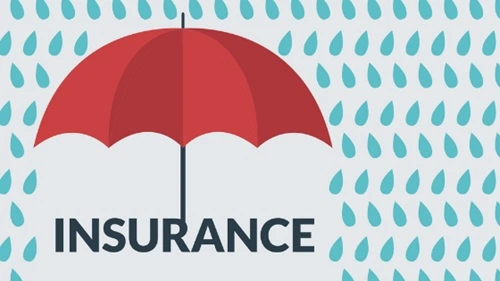In today’s world, having basic insurance like car, home, or health insurance is common, but what if something unexpected happens that exceeds your regular insurance limits? That’s where Umbrella Insurance comes into play. It acts like a “safety net” that provides extra coverage beyond the limits of your other insurance policies. Umbrella insurance can help protect your savings, home, and even future income from large claims or lawsuits.
Now, let’s take a closer look at the advantages and disadvantages of umbrella insurance.

Advantages of Umbrella Insurance
1. Additional Liability Protection
Umbrella insurance provides extra protection when the liability coverage of your other policies (like home or car insurance) is not enough. For instance, if someone sues you after a major car accident and the damages exceed your auto insurance limits, umbrella insurance can cover the excess amount. This can save you from having to pay out of pocket for such claims.
2. Covers Various Risks
Unlike standard insurance policies that cover specific areas (e.g., car accidents or home damage), umbrella insurance is broader. It not only covers accidents but also lawsuits related to defamation, slander, or property damage. This extra layer of protection gives you peace of mind, knowing that you’re covered for a wide range of risks.
3. Protects Your Assets
One of the biggest advantages of umbrella insurance is that it helps to protect your assets, including your savings, property, and future earnings. For example, if you’re a property owner, especially with a rental property, Student rental house insurance can provide added protection for your investment, covering potential liabilities from student tenants or incidents on the property. This ensures both your financial security and the protection of your rental income. In the event of a significant claim or lawsuit, you could lose a substantial portion of your hard-earned money. Umbrella insurance safeguards you from losing everything in such situations.
4. Affordable for the Coverage Provided
Despite offering high coverage limits (usually starting from ₹1 crore or more), umbrella insurance is often affordable compared to the level of protection it offers. You can get coverage worth crores for a relatively small annual premium. This makes it an attractive option for individuals who want to protect themselves from large financial losses without spending too much on premiums.
5. Covers Legal Expenses
Legal battles can be costly. If someone sues you, umbrella insurance not only covers the damages but also the legal expenses, including lawyer fees, court costs, and settlement negotiations. These costs can add up, and having umbrella insurance ensures that you don’t have to pay these expenses out of your pocket.
Disadvantages of Umbrella Insurance
1. Requires High Liability Coverage in Other Policies
To qualify for umbrella insurance, you often need to have a high level of liability coverage in your existing policies, like car or home insurance. For example, you may need to have at least ₹25 lakh in liability coverage in your car insurance before the umbrella insurance kicks in. This can make the total insurance cost higher if you have to increase the liability limits in your other policies.
2. May Not Cover All Situations
While umbrella insurance offers broad coverage, it doesn’t cover everything. Certain situations like intentional damage, business-related claims, or damages caused by war are usually excluded. You must carefully read the policy to understand what is and isn’t covered, so you don’t face any surprises later.
3. Not Necessary for Everyone
Umbrella insurance is best suited for individuals with significant assets or high-risk situations, such as owning multiple properties or engaging in risky activities. For others, it might be an unnecessary expense. If your assets and income are relatively modest, your existing liability coverage might be enough, and purchasing umbrella insurance could be over-insuring.
4. Complex Claims Process
Since umbrella insurance covers multiple policies and risks, the claims process can sometimes become complex. You may need to coordinate between different insurers and provide more documentation to settle a claim. This process might take longer compared to standard insurance claims.
5. Higher Premium for Risky Individuals
If you are involved in activities that are considered high-risk (like owning a swimming pool, renting out properties, or frequently hosting parties), your premium for umbrella insurance may be higher. This could make it more expensive for certain individuals based on their lifestyle and activities.
Conclusion
Umbrella insurance can be a valuable addition to your existing insurance coverage, offering you extra protection for a wide range of risks. It’s especially useful for individuals with significant assets who want to avoid financial losses due to large claims or lawsuits. However, it’s important to assess whether you truly need it, as not everyone may require the extra coverage. Consider the pros and cons carefully to make the right decision for your financial security.
By understanding the advantages and disadvantages of umbrella insurance, you can make an informed choice and decide if this extra layer of protection is worth it for your situation.